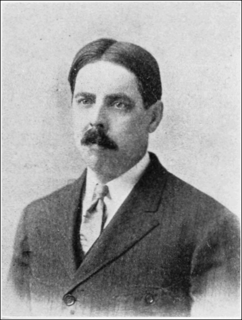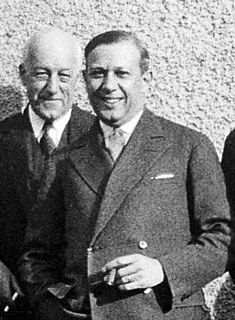A Quote by Edward Thorndike
This growth in the number, speed of formation, permanence, delicacy and complexity of associations possible for an animal reaches its acme in the case of man.
Quote Topics
Related Quotes
A second possible approach to general systems theory is through the arrangement of theoretical systems and constructs in a hierarchy of complexity, roughly corresponding to the complexity of the "individuals" of the various empirical fields... leading towards a "system of systems." [...] I suggest below a possible arrangement of "levels" of theoretical discourse...(vi) [...] the "animal" level, characterized by increased mobility, teleological behavior and self-awareness...
Some important ideas from the book of early Christians which is called Philokalia: From Spiritual Directions of Diadochus of Photiki The acme of faith is... immersion of the mind in God. The acme of freedom from wealth is to desire to be possessionless even as others desire to possess. The acme of humbleness is to forget unfalteringly good deeds of oneself. The acme of love is to enhance your friendly attitude to those who insult and revile you.
The formation in geological time of the human body by the laws of physics (or any other laws of similar nature), starting from a random distribution of elementary particles and the field is as unlikely as the separation of the atmosphere into its components. The complexity of the living things has to be present within the material, from which they are derived, or in the laws, governing their formation.
Now the basest thought possible concerning man is, that he has no spiritual nature; and the foolishest misunderstanding of him possible is, that he has, or should have, no animal nature. For his nature is nobly animal, nobly spiritual,--coherently and irrevocably so; neither part of it may, but at its peril, expel, despise, or defy the other.





































